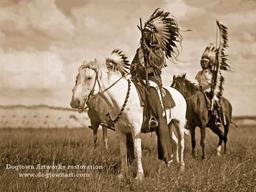
Westward Expansion 4A
Quiz by joyce lackey
Feel free to use or edit a copy
includes Teacher and Student dashboards
Measure skillsfrom any curriculum
Measure skills
from any curriculum
Tag the questions with any skills you have. Your dashboard will track each student's mastery of each skill.
With a free account, teachers can
- edit the questions
- save a copy for later
- start a class game
- automatically assign follow-up activities based on students’ scores
- assign as homework
- share a link with colleagues
- print as a bubble sheet
16 questions
Show answers
- Q11862 law that gave 160 acres of land to citizens willing to live on and cultivate it for five yearsHomestead ActDawes ActFree Land AgreementLand Act30s
- Q2A railroad connecting the west and east coasts of the continental USPacific Central RailroadCoast to Coast RailroadPacific Union RailroadTranscontinental Railroad30s
- Q3a period in history when thousands of people came to California in order to search for goldEasy MoneyGold RushLand RushRich Lands30s
- Q4Purposely frightening another person through threatening words, looks, or body language.PowerIrritationIntimidationForce30s
- Q5Apache chieftain who raided the white settlers in the Southwest as resistance to being confined to a reservation- He eluded capture for 2 yearsSitting BullChief JosephGeronimoBarking Dog30s
- Q6American Indian chief, lead the victory of Little BighornGeronimoSitting BullChief JosephCrazy Horse30s
- Q7Leader of Nez Perce. Fled with his tribe to Canada instead of reservations. However, US troops came and fought and brought them back down to reservationsNez PerceChief JosephCrazy HorseGeronimo30s
- Q8Native American Tribe that will flee capture from U.S. Troops, who almost make it to Canada.LakotaSiouxApacheNez Perce30s
- Q9An act that gave leftover land in the west to the native Americans and accepting the land was forced to participate in American culture.Relocation ActReservationHomestead ActDawes Act30s
- Q10Sitting Bull, the leader of the Plains Indians refused to go to reservations. The federal troops led by Custer and the federal troops engaged in a battle that was the last victory for the American Indians. Cuter and all his troops were killed in the battle.Battle of Little Bighorn (Custer's Last Stand)Battle of Bull RunBattle of Amber CreelBattle of Wounded Knee30s
- Q11He and all of his men lost their lives at the Battle of Little Bighorn. Leader of the federal troopsLieutenant Colonel George Armstrong Custer of the 7th Calvary30s
- Q12Federal land set aside for Native Americans (often it was undesirable land with few resources)treatyinternment campsrelocationreservation30s
- Q13to move to another placetransferreservationmovementrelocate30s
- Q14the social process of absorbing one cultural group into harmony with anotherlaminationassimilationCulture exchangeDiversity30s
- Q15US soldiers massacred 300 unarmed Native Americans in 1890. This ended the Indian Wars.Battle of Little Big HornBattle of Wounded KneeBattle of Amber CreekBattle of the Great Plains30s